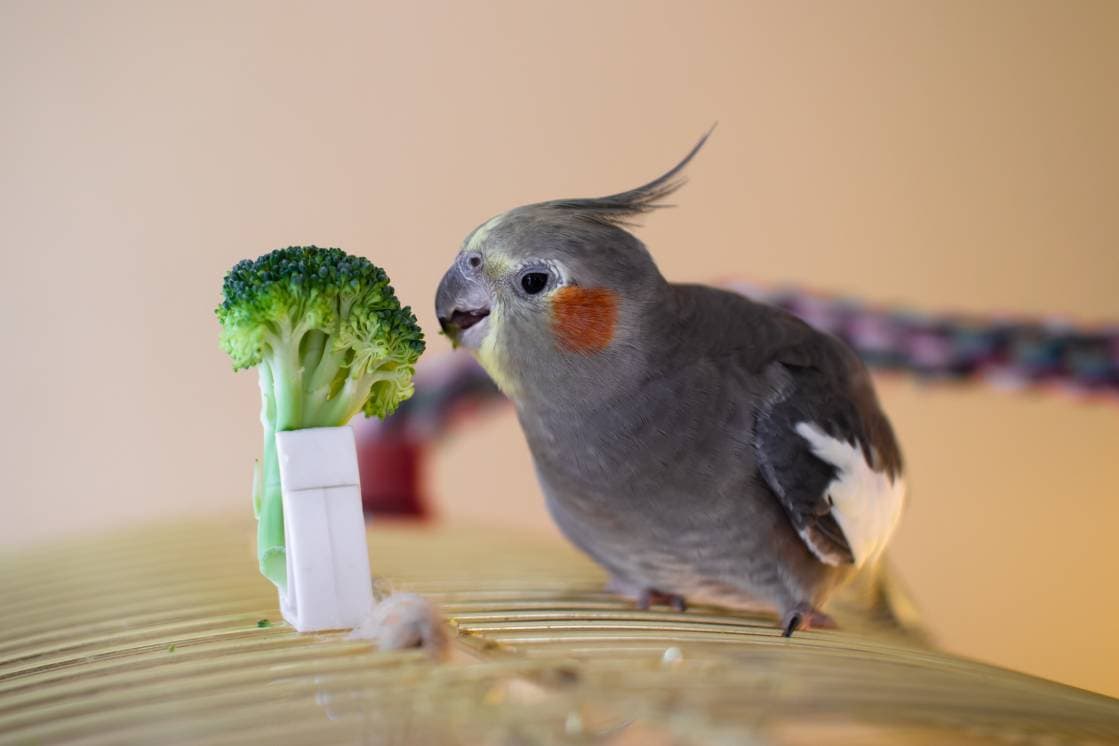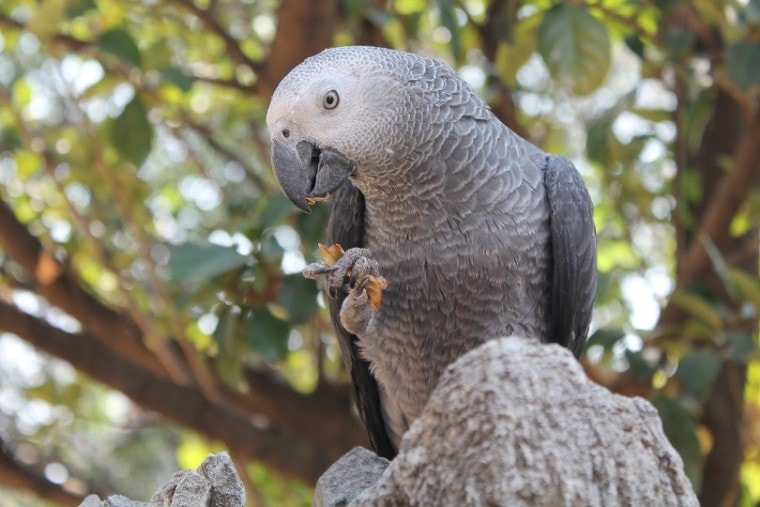
The “Einstein of the Bird World”. That’s a pretty cool nickname for the African grey parrot. Does he live up to the name, though? And if he is, are you ready to welcome such a smart pet bird into your home? Do you have what it takes to take care of him during the many years he will be with you? Don’t worry; in this guide, you will find all the information you need to decide if the African grey parrot is the best companion bird for your needs and lifestyle.
Let’s dive in!
African Grey Parrot Species Overview
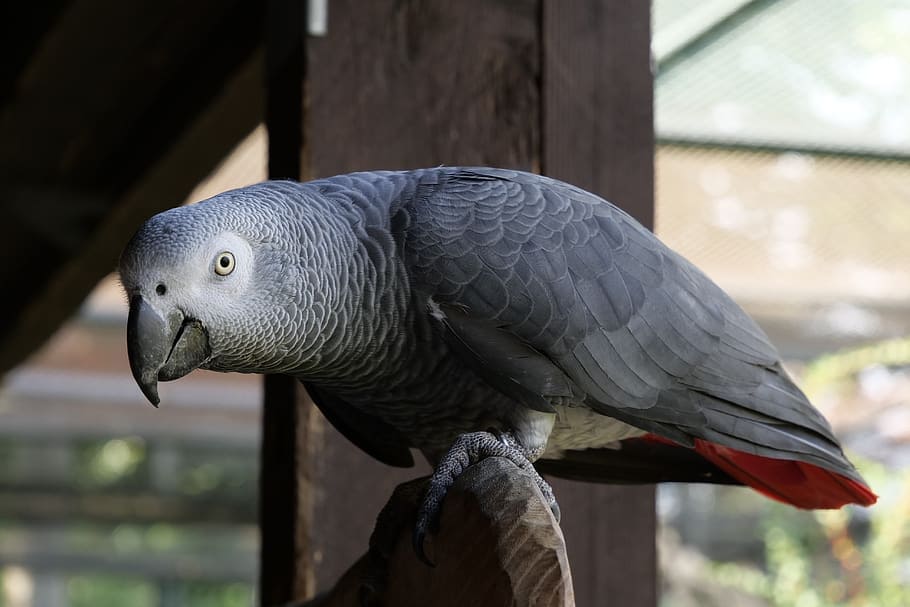
| Common Names: | African grey parrot, grey parrot, Congo grey parrot |
| Scientific Name: | Psittacus erithacus |
| Adult Size: | 400 grams; 13 inches |
| Life Expectancy: | 23 years in the wild, 40–60 years as pets |
Origin and History
In the wild, the African grey parrot lives mainly in the equatorial forests of the countries of central and western Africa: Gabon, Cameroon, Congo, Democratic Republic of Congo, among others.
The first description of this parrot species was made in 1758 by the Swedish naturalist Carl von Linné. Over the centuries, the high popularity of this bird has contributed to the decline of its numbers in the wild. The destruction of its natural habitat by deforestation has exacerbated this trend. This is why the species is listed in Appendix I of the Convention on International Trade in Endangered Species of Wild Fauna and Flora (CITES).
Also, according to the International Union for Conservation of Nature Red List of Threatened Species (IUCN), the African grey parrot is now an endangered species due to its international trade and ongoing habitat loss, which means it is now suspected of suffering a rapid decline over the next four decades.
It is one of the most popular pet birds in Europe, the United States, and the Middle East due to its longevity and unrivaled ability to mimic human speech. However, the majority of legal exports of this bird now come from Central African countries – such as Cameroon, Congo, and Gabon.
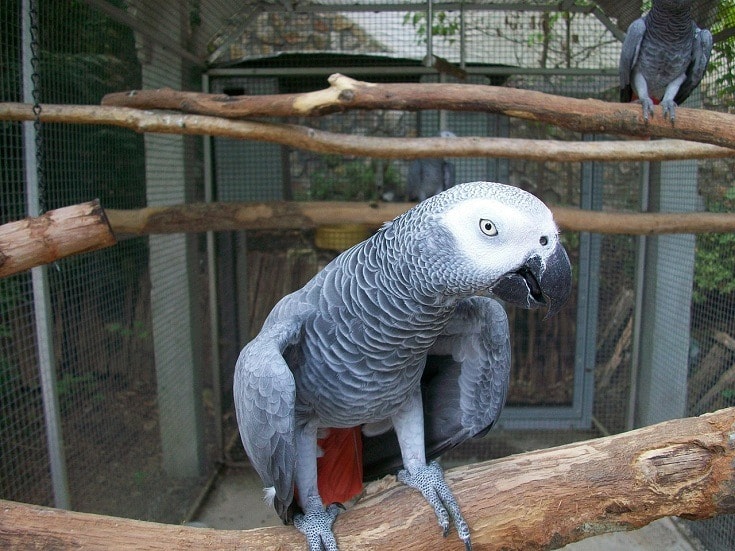
Temperament
The African grey parrot is a lovely, curious, fascinating, and highly intelligent bird.
Indeed, this medium-sized bird has an extraordinary ability to learn words and noises. So don’t be surprised if your bird starts to mimic the ringing of the phone, the bark of a dog, or even the swear words you say without realizing it! Indeed, the peculiarity of this bird is that it knows how to place sounds and words in their precise context and not only by imitation. Thus, his intelligence is recognized as similar to that of a 6-year-old child.
However, the African grey parrot does not support loneliness. He is a sensitive bird because of his great emotional intelligence. Be aware that your bird is likely to become very attached to you, much more than any other breed of bird. So, if you are away from your home for long hours every day and come back too tired to spend quality time with your bird, it would be wiser to adopt a more low-maintenance species of bird.
Thus, the African grey requires a lot of care and attention, especially regarding its socialization and training. A stimulating environment, as well as daily interactions, are essential. Take the time to educate him on a daily basis, to interact with him, and he will reward you by surprising you day after day!
Speech & Vocalizations
Grey parrots are known to mimic noises heard in their surroundings and use them relentlessly.
As pets, African grey parrots have been shown to exhibit communicative skill, which means that they use human language correctly and in a manner appropriate to the social situation they find themselves in.
If you want your parrot to speak, you will need to speak to it regularly and use the same words. This will allow your pet to familiarize itself with your vocabulary and to repeat your words without difficulty.
Always be patient, gentle, and attentive. Don’t force it or rush it. Your bird will talk to you when he feels confident and decides it’s the right time. If you stress him out, he will close in on himself, and your relationship will suffer.
African Grey Parrot Colors and Markings

While the African grey parrot may look like a monochrome bird, his plumage features more nuance and subtlety than you might think!
Indeed, the grey parrot’s plumage is not a solid grey. Instead, the feathers on its head and wings are a darker gray, while the feathers on its undercoat are a lighter, more silvery grey. The head feathers are also streaked and tinged with white.
There are a few other splashes of color as well: yellow eyes, black bill, and its tail feathers are bright red. Additionally, mutations can occasionally make parrots red, blue, brown, or albino.
Some breeders have tried to make African grey parrots redder. Their experiments were a success: some parrots are born with all red or all pink plumage instead of grey. Moreover, these specimens are generally sold at astronomical prices because they are so rare!
Also, grey mutations occur naturally in the wild, such as the Blue Ino (all white), the Incomplete Ino (only light pigmentation), and the Blue varietals.
Caring for the African Grey Parrot
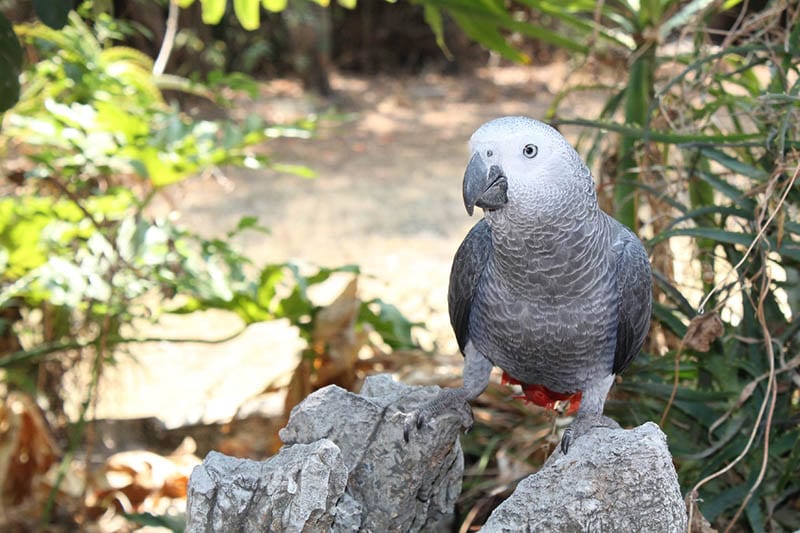
Housing and Enrichment Toys
Your bird’s cage should be ready before your parrot arrives. Place it in a pleasant and lively space, such as a living room, because this bird is very friendly and likes to participate in family life. However, avoid a drafty location and close to a window so as not to have direct light. Also, avoid the kitchen because of the smoke – his lungs are fragile – and the bedrooms, which may be too quiet.
His cage should be large enough so that he can spread his wings and fly a little. It should be of solid material, with a complex opening system, because your parrot can quickly learn how to open it!
Install small toys so that he can have fun all day; arrange perches of different sizes. Choose them made of wood so that he can rub his beak on them.
Grooming
In their natural habitat, grey parrots like to groom each other. If you only have one individual as a pet, they will need your help! But don’t worry, you won’t need to clean his feathers one by one like one of his feathered friends would. Instead, bathe him once a week in a small basin of lukewarm water and watch him wade happily in the water!
Common Health Problems
The African grey parrot demands special attention regarding its respiratory tracts, which are quite fragile. The most frequent diseases observed in this species are:
Also, another disease that requires immediate care is hypocalcemia. Indeed, it is difficult for some African greys to maintain adequate blood calcium levels. Signs of this condition are sometimes subtle: the parrot is unusually awkward, slips off its perch at night, or is shaken by small tremors. If the hypocalcemia is not corrected at this stage, the bird’s health may deteriorate over time and lead to seizures. Prompt veterinary attention is crucial since the life of the bird may be in danger.
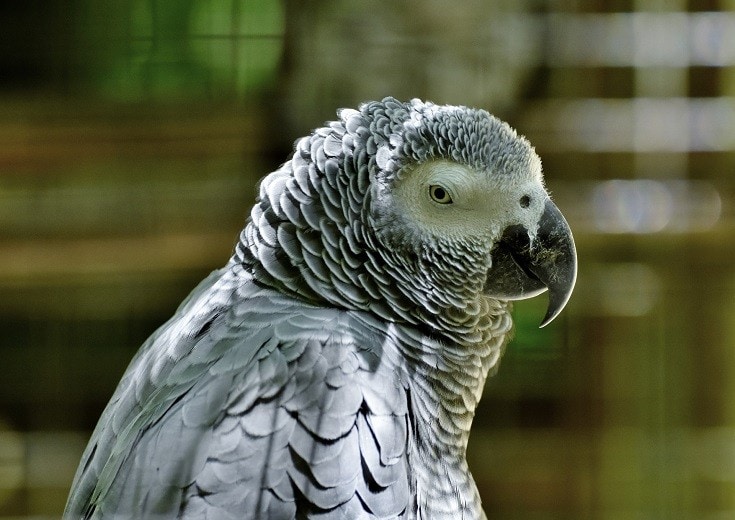
Diet and Nutrition
African grey parrots are mainly frugivorous: they enjoy a diet made of fruits, nuts, bird pellets, and some seeds. You can offer your pet bird fresh fruits and veggies, such as:
Your African grey parrot needs quality, well-balanced food. Choose mixtures made explicitly for Psittacidae, available from breeders and specialist stores. Some commercial seed mixes may suffice temporarily, but they are often too high in fat. Your bird is likely to sort the seeds he prefers, so he might get overweight and have nutritional deficiencies over time.
Complement his diet with a mineral stone. This will be a source of calcium and minerals essential for the well-being of your bird.
Also, make sure to wash his bowls of fresh water daily. Then, once a week, pour a vitamin supplement into his water to overcome any risk of deficiencies and preserve the beauty of its plumage.
Exercise
Your African grey parrot needs to spread its wings daily to maintain good health. Thus, your companion should be allowed to spend at least 1 to 2 hours a day outside his enclosure, but only if you can give him access to a safe room. If not, your bird’s cage should be large enough to allow him to fly at will; an aviary is often a good option to consider. In addition, your parrot’s cage should contain many toys to stimulate him mentally and physically and prevent him from getting bored.
Where to Adopt or Buy an African Grey Parrot
Adopting or purchasing an African grey parrot is a decision to consider carefully. It will take a lot of commitment and time on your part, especially for its long lifespan and because it will become a rather loud member of your family.
It is possible to buy a grey parrot in specialist bird shops or from a bird breeder. Unfortunately, you should know that it is not uncommon for parrots to see at least 11 owners in their lifetime.
Therefore, you should really consider adopting an African grey parrot as there are so many that have been abandoned in shelters. Bestfriends.org and other reputable websites are a good place to start in finding your feathered companion.
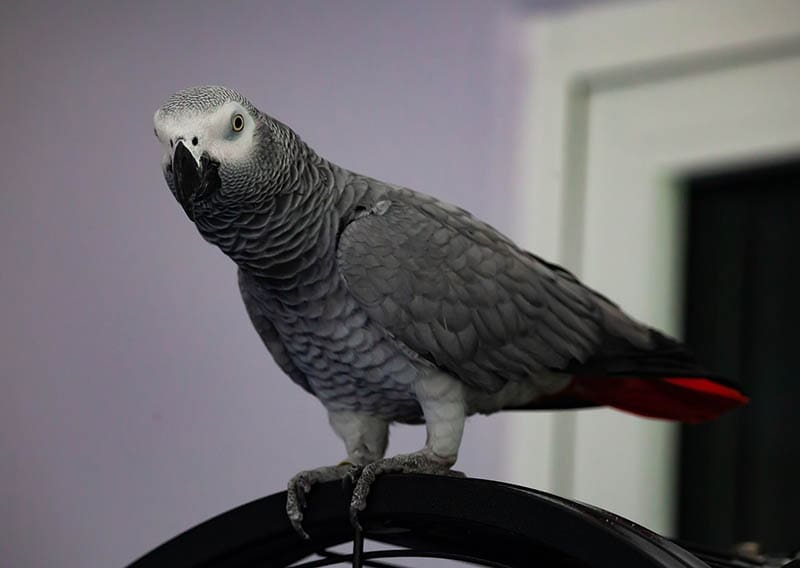
Conclusion
In short, the African grey parrot is a fascinating companion bird. But, on the other hand, his remarkable intelligence, empathy, and (very) long life expectancy are double-edged swords. Indeed, this bird requires a lot of attention and interaction from its human. If you don’t give him proper care and if you neglect him and forget him in the corner of your house, you are dooming him to years of suffering. This is why you must carefully weigh the pros and cons before adopting such a bird. But, if you are well prepared and informed, you will have the chance to spend wonderful years of companionship with this charismatic and endearing parrot!
Featured Image Credit: Daniel Albany, Pixabay





